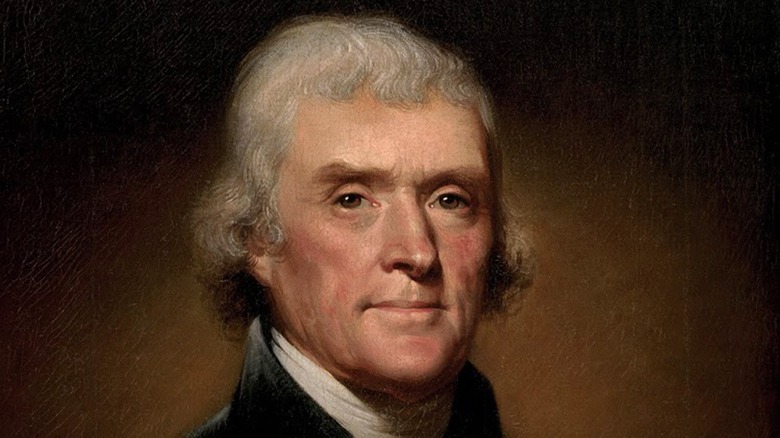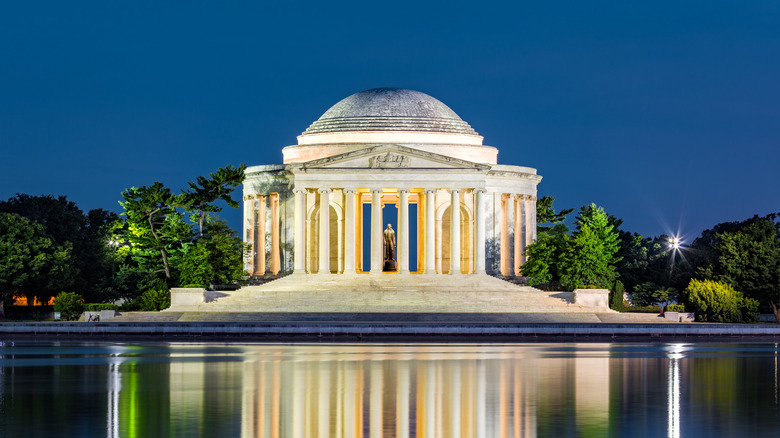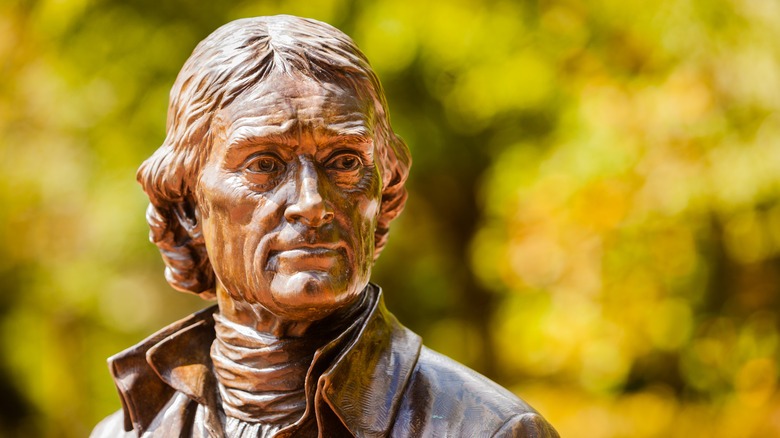What Most People Get Wrong About Thomas Jefferson's Last Words
There have been many presidents in American history — some worse than others — but very few go on to achieve the status of Thomas Jefferson. Jefferson is without a doubt one of the most beloved and influential US presidents in American history.
A talented and intelligent writer, Jefferson's most well-known accomplishments would be the Louisiana Purchase, advocation for the separation of church and state, and writing of the Declaration of Independence (via Britannica). He was born April 2, 1743, and died July 4, 1826, and served as the third US president from 1801 to 1809.
And while this nation leader's legacy will forever be cemented in history, there might be one thing that still deludes people to this day: Jefferson's last words. It should seem simple enough, but, as Monticello says, the topic becomes muddied when one discovers that there were actually multiple accounts of what Jefferson last said. This has led to misconceptions to Jefferson's final words.
There are varying accounts of Jefferson's last words
The lives of US presidents are often filled with intrigue, and sometimes secrets. Thomas Jefferson was no exception. But the man's dying words still captivate the hearts of many: "this is the Fourth of July" (via The Vintage News). Or so it is commonly believed. Many people think these were Thomas Jefferson's final words, but this is actually somewhat deceiving.
It's easy to see why. These words perfectly wrap up Jefferson's illustrious career and his relentless fight for America's independence, by concluding with a nod to July 4th (Independence Day). However, what many people don't understand is that this is only one account, and several witnesses gave their own variations.
As Monticello states, there is a bit of uncertainty with this account, as three people were present with Jefferson during his final moments: Nicholas Trist, Virginia Randolph, and Thomas Jefferson Randolph.
Jefferson's last words may never fully be known
The problem with Jefferson's famous last words is that historians don't exactly have a very clear idea about what they might have actually been. As Monticello says, the problem is not just the varying accounts, but that people cannot exactly assume that the recorded words are the last words Jefferson ever said. He could have possibly said more before dying, or perhaps the eyewitness accounts are misleading.
There is, however, enough evidence to suggest that Jefferson's last words were likely "no, doctor, nothing more." These words aren't as poetic as the oft quoted Fourth of July ones, however.
As the Washington Post states, the context of this was that Jefferson did not want to take medicine at the time from his doctor. He promptly told his doctor that he was fine and fell asleep. No one really knows if this was the last thing Jefferson ever said, but in the end, it doesn't really matter. After all, a person's last words aren't nearly as important as the life they led.


